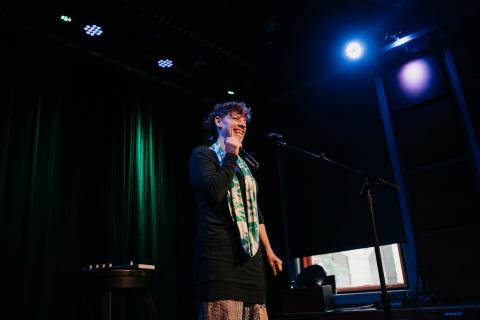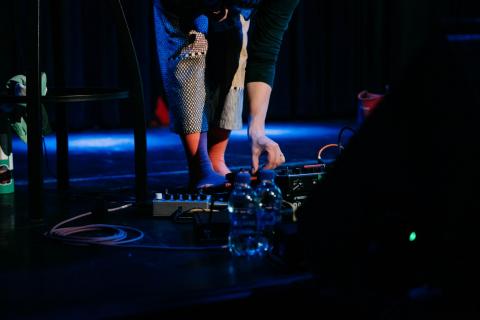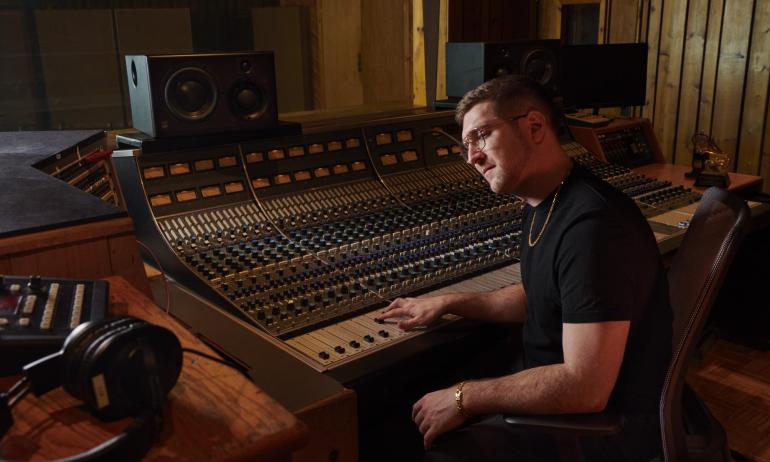Soul of Her Own Machine: Merrill Garbus Reveals the Human Side of Looping

Merrill Garbus of Tune-Yards spoke to students about live-looping, her songwriting process, and more.
Image by Ben Pu

Garbus's technical setup is simple by design, as it allows her to work within and transcend her own limitations as a performer.
Image by Ben Pu
Using two basic loop stations and a few other basic effects pedals (including a pitch shifter and echo emulator), vocalist, songwriter, and composer Merrill Garbus can summon a choir of offbeat angels from within her own body. “It becomes a choreography with myself,” the Tune-Yards singer said at a recent songwriting clinic, describing the physicality involved when performing whole shows with so many buttons and cues to hit. “It’s that interesting thing with technology and bodies, when you’re performing. As a performer, there’s so much breathwork and core work when you perform.”
"I can be a machine—let me show you how machine-like I can be.”
—Merrill Garbus
From a technical standpoint, her setup is fairly simple in the sense that there are dozens of more streamlined and error-proof products she could adopt. But she likes the energy and human element of working within limitations. “Basically, I have the most analog system that a digital system can be in this day and age,” she said. “Part of that is because I’m into organic and imperfect things.” The imperfect, the errors, are critical to taking command of your live show, she admitted, saying that it teaches you how to be more present. “A big part of performing is learning the mistake before others catch it.”
Listen to a clip of Garbus live-manipulating organic sounds:
She described her origins coming up in the early to mid-2000s, where now-defunct social media platform MySpace and user-friendly recording software GarageBand democratized the technical, social, and networking aspects of the music industry, creating a boom of DIY-ers.
While the do-it-yourself aesthetic appealed to Garbus, she felt the technology was not something to fully adopt nor reject, but instead wrestle with. “As time went on,” she said, “I started to be like, ‘I can be a machine—let me show you how machine-like I can be,’” which was both a challenge and a way for her to infuse her humanity into a tangle of circuits and wires. Looping her voice, in effect, ultimately allowed her to, well, find her voice. “No one but me works this way, and that’s a good thing. I needed the courage to go after it myself.”




